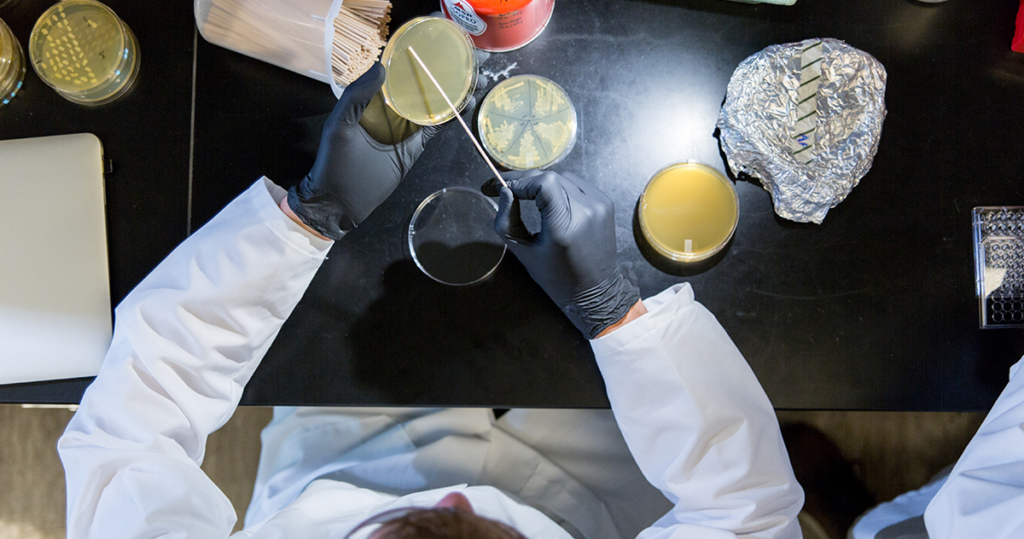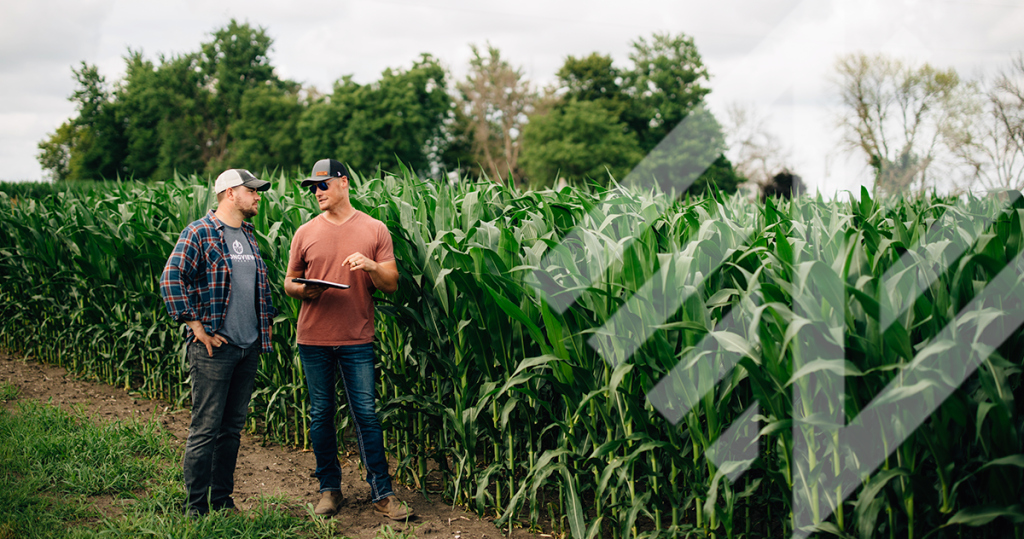Pivot Bio – Elevating the Research on Nitrogen Fixation

In the last year, there have been several reports about the effectiveness of nitrogen fixation in improving crop productivity. As a scientific leader, Pivot Bio, alongside members of our esteemed Scientific Advisory Board, is launching a collaborative effort to develop a common language, methodology, and comprehensive approach for evaluating scientific nitrogen-fixation claims and the effectiveness of their derivative commercial products.
Pivot Bio’s scientific team and members of Pivot Bio’s Scientific Advisory Board recently had the opportunity to review a new paper: “Science losing its way: examples from the realms of microbial nitrogen-fixation in cereals and other non-legumes.” The study was published in a periodical called Plant and Soil. The authors include Ken Giller with Wageningen University, The Netherlands,along with three professors from the U.K. and Australia.
In this publication, Giller, et al. provide commentary on multiple microbial products from the nitrogen fertility category and argue for new regulatory oversight to judge the effectiveness of nitrogen-fixing products for nonlegumes.
While we were not involved as a resource on this paper, we align with certain views expressed in it. Our own scientists, along with members of our Scientific Advisory Board, which includes researchers from institutions such as MIT, NYU, the University of Wisconsin, Universidad Politécnica de Madrid and the University of California, Davis, are at the forefront of this crucial field.
We believe that better analysis and understanding of nitrogen fixation and its promise will come from collaboration and cooperation. We are taking the opportunity to explore building a scientific coalition that will promote high scientific engagement across the industry. Our aim is to work collaboratively to share learnings and drive specificity on modes of action and the nuances between approaches, as well as set standards for product performance and quality. We also see an opportunity to advance nitrogen education and agronomic resources. We know that articulating a specific mode of action is needed to critically assess product performance, and it is also fundamental to understanding how multiple technologies should fit together.
We know there are a lot of new players in the ag-biological space. Some are reputable and backed by peer-reviewed research, like Pivot Bio; others do not yet have the same scientific rigor, another point Dr. Giller and his colleagues make in the paper. Ensuring there are common scientific measurements, definitions and protocols will ensure that more rigor comes to all in the space.
Nitrogen fixation is agriculture’s toughest problem to solve. The challenges we tackle are complex, and while we cannot speak for all companies and products in the industry, we believe it is critical to document a clear mode of action and measurements that support product performance claims.
Doing so with scientific rigor can be particularly challenging in a highly variable agronomic setting. That is why Pivot has invested in more than 40 university research trials and thousands of other research trials during the past 10 years. The positive results seen by growers using our products across more than 13 million acres inspire our confidence that our solutions are creating a meaningful and lasting impact on farms and the environment for generations to come.
The paper mentions the need for regulation. Our products are regulated in every country where we operate. In the U.S., Pivot’s products have been reviewed by the USDA, FDA, EPA and regulators in all the states in which they are sold. In each case, they have been found to comply with all state and federal laws and regulations.
As the industry leader, Pivot takes our responsibility for explaining the benefits and safety of this emerging class of products very seriously. Biotechnology is what has enabled Pivot Bio to provide the first new source of nitrogen to farmers in 100 years, one that performs better and at a lower cost, while being better for the environment. We are proud of the work we do to help regulators and policymakers understand the role our products can play to help the world safely produce more food, fuel and fiber to meet the needs of a growing population without compromising the cleanliness of our air and water. In every market we enter, we go through an intense registration and regulatory process.
Effectiveness of Pivot products – the science
Contrary to the opinions expressed by Giller, et al., nitrogen fixation is a long-studied relationship between microbes and cereal crops. The conundrum is that 1) microbes do not fix enough nitrogen to meet crop needs in modern agriculture and further, 2) fertilizer nitrates in soil cause microbes to stop fixing nitrogen. Researchers have long sought breakthroughs to enable higher levels of nitrogen fixation for cereals, and some notable advances have been made, including by members of the Pivot Bio Scientific Advisory Board (Iniguez, et al., 2004; Pankievicz, et al., 2015; Van Deynze, et al., 2018;and Ryu, et al., 2019).
At Pivot, we have developed products that enable high levels of nitrogenase expression and nitrogen fixation in the field through the application of gene editing. Gene-editing tools allow us to significantly increase the amount of nitrogen a microbe can fix, and do it irrespective of whether or not synthetic nitrogen was applied to the field. Without these edits, microbes do not fix enough nitrogen, nor do they do it consistently enough to create value for growers.
For the first time in the industry, our products provide a meaningful, reliable and dependable source of microbially–fixednitrogen to crops. They complement a farmer’s fertilizer strategy, currently supplying between 15% and 30% of the needed nitrogen. Ranges are dependent on farming practices and which kind of crop is grown. A complete nutrient program requires a multinutrient strategy to maximize yield. We aspire to continually increase the quantity of nitrogen supplied by our products and improve the total performance of a farmer’s fertility plan in concert with the other fertilizers they use with internal targets and paths to 50%+fixed by our microbes.
The commentary critiques one result from Pivot Bio’s paper covering our first-generation product, PROVEN®, that was launched in 2019. Unfortunately, it draws unreliable extrapolations from invitro methodologies that are meant to be interpreted qualitatively. Giller, et al. claim that results of an acetylene-reduction assay, where seedlings were grown in plastic bags with roots exposed to air, proves microbes cannot fix sufficient nitrogen to benefit crop-nitrogen status in a commercially relevant field setting. This critique misses the point of the assay to simply demonstrate that our microbes were producing functional nitrogenase enzymes. It is not designed to quantify plant nitrogen supply or nitrogen fixation rates applicable to field conditions.
Pivot Bio performs three types of experiments as we develop and characterize our products: enzymatic assays to assess nitrogenase activity, isotopic assays to track microbial contributions of fixed nitrogen to crops, and agronomic assays to characterize the physiological impact of nitrogen fixation on crops. We share our scientific data in multiple ways: through peer-reviewed journals, at scientific meetings and conferences, through our website, in the field through agronomic training seminars, directly with researchers doing work at leading universities and institutions, and through partnerships with other third parties.
Our second-generation product, PROVEN® 40, is supported by numerous in planta experiments and extensive field trials to establish our recommended real-world, agronomic replacement rates. Furthermore, some of these are currently under peer review.
Evidence from our experiments shows: 1) our remodeled microbes fix nitrogen from the air, 2) Pivot Bio microbes excrete ammonia at levels up to 980 times higher than their wild-type ancestors, and 3) fixed ammonium is taken up by plants and makes its way into the chlorophyll of leaves.
In the field, experiments demonstrate that use of our remodeled microbes results in more plant nitrogen coming from the atmosphere and higher yields. Extensive agronomic data on PROVEN® 40’s performance can be found here.
Call to action
We encourage the development and adoption of common standards for this class of products so that the industry can continue to build trust in new innovations.
In the summary Dr. Giller says, “The field of nitrogen-fixation has a long history of exemplary research that ranges from the structure and function of the nitrogenase enzyme to the application of technologies in agriculture. The research required and the techniques employed at all scales are complex, and there is a declining number of specialists in each critical area. The discovery of nitrogen-fixing bacteria associated with plants is exciting, but to determine whether such an association can provide a significant amount of N for plant growth requires collaboration among a wide range of specialists.”
We couldn’t agree more. Given our role as a leader in this area, we know that we must convene the best of science, technology and business to create solutions to one of agriculture’s most pressing problems for farmers around the world.
We look forward to speaking to Dr. Giller, as well as the large number of notable scientists, academics and technologists who are working on this important breakthrough innovation.


